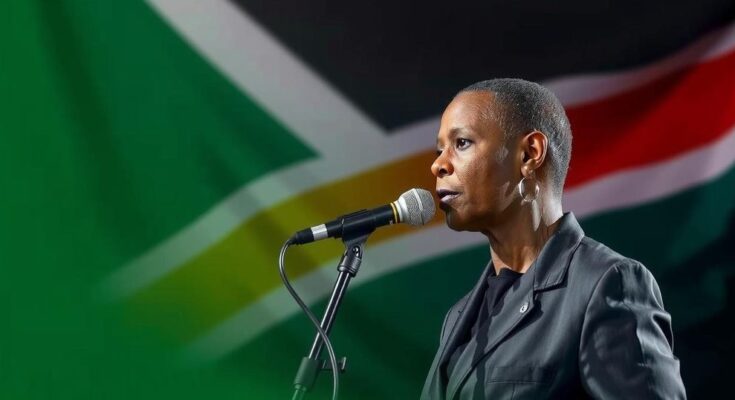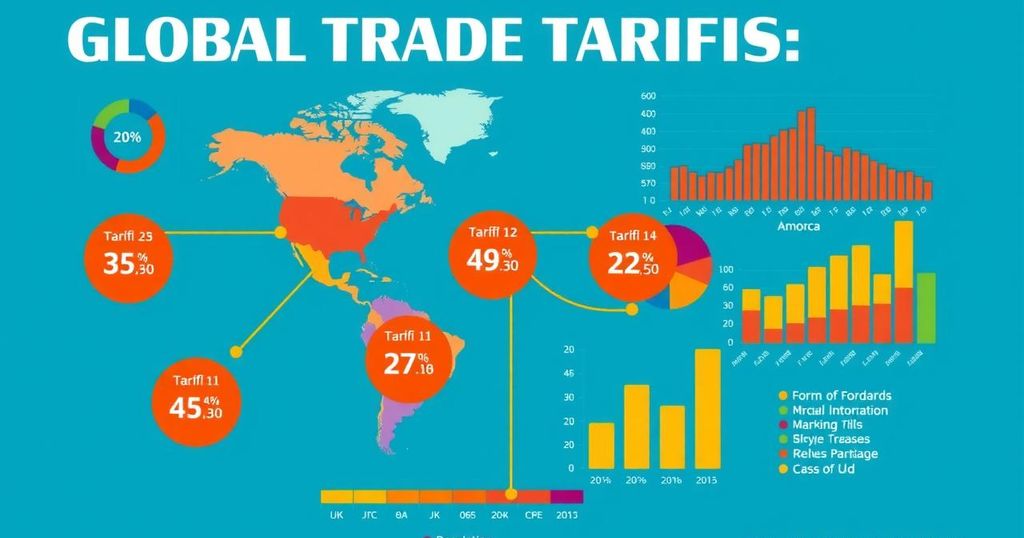Botswana’s ruling party, the Botswana Democratic Party (BDP), has lost its parliamentary majority in a historic election, ending 58 years of governance. President Mokgweetsi Masisi conceded defeat as the opposition coalition, Umbrella for Democratic Change (UDC), led by Duma Boko, achieved a substantial victory. Socio-economic issues, particularly high unemployment and dissatisfaction among young people, have contributed to this electoral shift, marking a pivotal moment in the country’s political landscape.
Botswana’s ruling party, the Botswana Democratic Party (BDP), has experienced a significant electoral defeat, marking the end of its 58-year governance. Following the preliminary election results, President Mokgweetsi Masisi publicly conceded defeat on Friday, acknowledging his party’s loss of parliamentary majority to the opposition coalition, Umbrella for Democratic Change (UDC), headed by lawyer Duma Boko. Current reports indicate that the UDC has secured a substantial lead in constituencies, winning 26 parliamentary seats compared to the BDP’s mere three out of 61 constituencies. This election represents a pivotal moment for the country as it transitions power for the first time in almost six decades. The decline of the ruling party is attributed to a growing sense of discontent among the younger populace, driven by socio-economic challenges, notably rising unemployment rates which have reached 28%. Analysts assert that the economic downturn, exacerbated by a slump in the global diamond market, has further strained the BDP’s popularity. During a press conference, President Masisi expressed respect for the democratic process stating, “Although I wanted to stay on as your president, I respect the will of the people and I congratulate the president-elect. I will step aside and I will support the new administration.” Celebrations erupted among opposition supporters, reflecting a momentous change within Botswana’s political landscape. One young voter, Mpho Mogorosi, remarked, “I did not ever think I would witness this change in my life. The BDP had stayed too long in power, and I am proud to be part of the people that removed them for a better Botswana.” This electoral shift aligns with a broader trend across southern Africa, where established parties such as South Africa’s African National Congress have also faced significant electoral setbacks this year. As Tanzania gears up for elections within the month, the effectiveness of incumbent administrations will undoubtedly be scrutinized following Botswana’s landmark vote. The events in Botswana resonate widely, serving as a cautionary tale for long-standing ruling parties across the southern African region and beyond, as noted by Zaynab Hoosen, an analyst at Pangea-Risk, who highlighted that continued political dominance requires sustaining economic growth and job creation.
Botswana, a country that gained independence from British colonial rule in 1966, has been historically reliant on diamond mining as its primary economic driver. The BDP, the ruling party since independence, has maintained a steady grip on power for nearly six decades. Nonetheless, the recent defeat in the elections has prompted discussions regarding the factors contributing to this decisive shift, particularly the economic struggles faced by the youth and the nation at large, leading to increased calls for political change and accountability. The evolving political landscape in southern Africa is reflective of broader trends wherein traditional parties encounter challenges in maintaining authority amid growing socio-political discontent.
In summary, the recent electoral defeat of Botswana’s ruling party represents a significant turning point in the nation’s political history, demonstrating the potential for change driven by economic grievances and societal demands for better governance. The public’s response signifies a desire for transformation, marking the beginning of a new political era under the leadership of the opposition coalition. This event not only impacts Botswana but also serves as a critical reflection of the political dynamics within the southern African region, where long-established parties face increasing pressure to address the needs of their constituents.
Original Source: www.cnn.com




